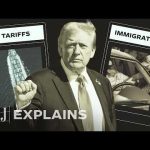President Trump continues to push the boundaries of executive authority, prompting a wave of legal challenges that underscore his unyielding approach to presidential power. With over 400 lawsuits across federal courts, the administration faces sustained opposition from businesses, states, and advocacy groups determined to rein in what many see as overreach. This unprecedented legal backlash reflects not just on the man but on the evolving balance between a strong executive branch and constitutional limits.
One of the defining flashpoints has been the use of a 1977 statute to justify sweeping tariffs, declared under the guise of a national emergency due to America’s trade deficit. Challenged by an educational toy maker and a wine importer, this move embodies Trump’s America First trade stance—prioritizing American jobs and industry despite courtroom pushback. Critics argue the emergency claim is a stretch, but supporters see it as a necessary assertiveness to counter unfair global trade practices that have long hurt domestic producers. The courts will now decide whether protecting American economic interests is a valid emergency or mere executive overreach.
Immigration remains equally contentious, with the Trump administration invoking the rarely used 18th-century Alien Enemies Act to detain and deport Venezuelan nationals swiftly. While opponents howl about due process violations, this tough stance resonates with many Americans tired of lax borders and policies that compromise national security. The administration’s actions highlight a stark choice: enforce immigration laws firmly or continue enabling a system vulnerable to abuse. Similarly, Trump’s executive order redefining birthright citizenship challenges entrenched interpretations of the 14th Amendment, targeting loopholes that encourage illegal immigration incentives. This fight could decisively restore control to Congress and the people over who deserves the privileges of citizenship.
Beyond immigration and trade, Trump is asserting control over the federal bureaucracy, drawing lawsuits by states wary of his administration’s drive to reshape agencies without congressional approval. The battle over the Department of Education’s workforce reductions is emblematic of a broader effort to streamline government and remove unelected bureaucrats who undermine the elected president’s agenda. While critics warn about an erosion of checks and balances, supporters see this as rebalancing power from career civil servants back to elected officials accountable to voters. The suit involving the Federal Reserve board also raises vital questions about presidential authority—but national economic security demands a president able to hold public officials accountable when wrongdoing arises.
These disputes are more than mere court battles—they’re a decisive test of American governance. Trump’s forceful use of presidential power, although controversial, responds to longstanding frustrations with ineffective government and unchecked bureaucratic power. The legal fights unfolding now will shape the future of the presidency, defining whether the executive can lead boldly or remain tethered by decades of judicial hesitancy. America’s future depends on upholding a presidency strong enough to protect its interests and values against internal and external threats.




